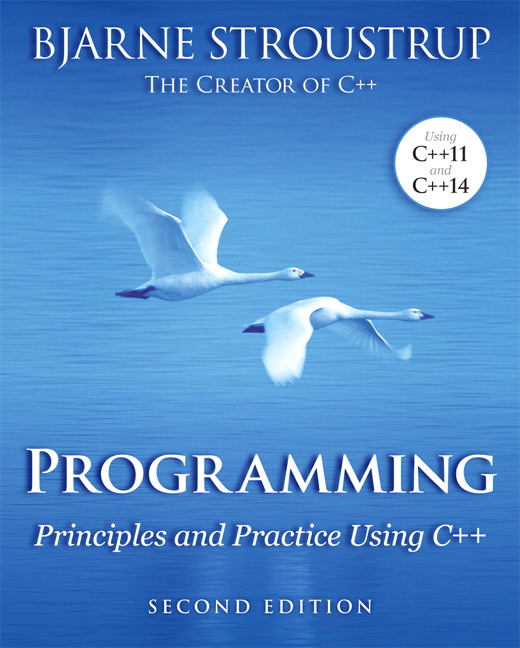Quick Q: How do generic lambdas work? -- StackOverflow
Quick A: They generate a templated operator(), and that means you can call the same closure object with all sorts of different parameters and it just stamps out the function for each set of parameter types.
A "new classic" question on SO, classic because it was posted a year ago, but newly relevant because now the mainstream compilers are implementing the feature:
How does generic lambda work in C++14?
How does generic lambda work (
autokeyword as argument type)?Is it similar to templates where for each different argument type compiler generates functions with the same body but changed types or is it more similar to Java's generics?
Code example:
auto glambda = [](auto a) { return a; };

 Stroustrup's introduction to programming book has now been updated for modern C++. The Preface was posted on InformIT:
Stroustrup's introduction to programming book has now been updated for modern C++. The Preface was posted on InformIT: Doug Schmidt's C++-based software design course is available on YouTube.:
Doug Schmidt's C++-based software design course is available on YouTube.: